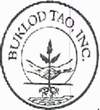

Accueil
Publié le 26 septembre 2005
Traductions disponibles en :
On the concepts of responsibility
There are three concepts of the Charter of Human Responsibilities which caught my attention.
First, the notion of responsibility.
Hindsight and current experiences manifest the various potentials and opportunities to spread this notion of responsibility. This is even more pervasive in the peripheral communities where I do community work.
Given the ample resources, passion and sincerity of what we do, plus a lead community organization with a good track record and reliability to lead and mould, responsibilities can be farmed out.
Example : the eight-year old Community-based Disaster Risk Management (CBDRM) of Buklod Tao attests to the notion that people at the periphery are willing to take on responsibilities for a larger, common good. Men and women become members of search/rescue teams, and health/relief teams. Space would not be sufficient to describe in detail the responsibilities that they discharge at the height of a flooding event in the flood-prone communities.
This notion of responsibility is already in place somehow (inseparable from any human relationship). But we have to let it unfold and bloom. Opportunities for the formation of widespread responsibility is regrettably on a piecemeal basis. In many communities there are no attempts at all to let it surface. If there is, it is so ephemeral and desultory, like taking on responsibilities for a day-long barrio fiesta festivities, basketball competitions and even beauty contests. A Charter such as this may change the way things are happening at the periphery. It should help to focus more on the ”unprecedented crises”, ”new concerns”, ”new challenges”.
Second, Accepting Responsibility.
People will accept responsibility only after an organized, vibrant group has shown that it has laid down its own stakes to the notion of responsibility. This entails patience, time, organizing efforts, frequent talks about accepting responsibility, tasking, and some measure of resources.
Example : Buklod Tao members undertook some measure of risk-taking when it decided to stand for their environmental rights against a construction company that would establish a cement barching plant at the tumana (agricultural land) of the community. We accepted responsibility to safeguard the health and safety of the children. We accepted responsibility in defense of the nearby river that could be polluted by the sludge of the proposed cement batching plant. Patient paralegal moves, timely mobilization of people accepting responsibility and assigned tasks plus some measure of resources (passing the hat to defray incidental expenses) led to victory for community folks imbued with responsibility).
Accepting responsibility definitely rings a bell to us who sacrificed to safeguard the ”very gift of life”. A Charter eventually will accentuate and vindicate our stand in the past : that we were not mistaken when we took on responsibility.
And may I add that accepting responsibility is a continuum, there is dynamism in it. After the protest marches, and complaints and signature campaigns contra an environmentally critical project (all were manifestations of accepting responsibility) in 1997, comes now the planting, caring and nurturing of bamboo seedlings planted this 22 May 2005. Several sub-groupings (Pangkat Kawayan) with the leaders and members pledge to accept responsibility for the long-term success of Buklod Tao Mitigation Project to stem erosion of the riverbanks by planting bamboo seedlings. And this shall be replicated still in two river embankment dwellers. Accepting responsibility is contagious, after all.
And third, the Invitation to Draw-up the Rules of our own Responsibility.
This Charter breathes freedom, encourages ”choices”, flexibilities, and creativity. I am glad that the Charter will recognize the respective vision, mission and goals of organizations for community building, sustainable development and enhancement of responsibilities.


